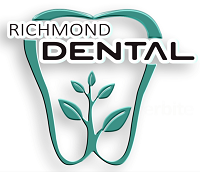Having a tooth removed can greatly affect everyday life, as it can change speech, eating habits, and confidence. Dental implants have always been a practical way for tooth replacement, and recently, mini dental implants have become popular for the various benefits they offer. This article explores the topic of mini dental implants, differentiating them from traditional implants and deciding if they can be the most fitting option for you.
Understanding Mini Dental Implants
Mini dental implants (MDIs) are dental implants of smaller size, which are generally less than 3 millimetres in diameter. The dental implant is essentially a metal post that has a round bulge on one of its ends and penetrates the gum inside the jawbone, accompanied by a rubber O-ring that serves to fix the man-made tooth to the post. Due to their reduced dimensions and innovative configuration, it has become possible that they would take over as a better solution for those individuals who are not fit for traditional dental implants.
When to Consider Mini Dental Implants
MDIs may be an appropriate solution in the following scenarios:
- Limited Bone Density: If you have insufficient jawbone density and wish to avoid bone grafting, MDIs can be a viable option.
- Replacing Small Teeth or Incisors: Their smaller size makes mini dental implants the right choice for replacing small teeth or incisors. Smaller dental implants offer a replacement that looks more natural without any need for extensive work on the surrounding teeth.
- Denture Stabilization: With MDIs, it is possible to get the proper support for loose dentures, thus increasing comfort and convenience. In some cases, the patients who can’t get along with standard dentures not only have no problems but also feel much better after changing for mini-implants.
- Medical Considerations: For patients with medical conditions that complicate traditional implant procedures, such as uncontrolled diabetes or connective tissue disorders, MDIs may offer a less invasive alternative.
Benefits of Mini Dental Implants
The following are the benefits of mini dental implants. Patients looking for dental implants in SW Calgary may find mini dental implants to be a convenient and effective solution.
- Minimally Invasive Procedure: MDIs are much easier to place. They are much less invasive than traditional implants. Consequently, the patients usually experience less pain, have less swelling, and recover in less time. A lot of patients say that they go through the procedure more comfortably because it is not as complicated.
- No Need for Bone Grafting: MDIs are made in a small size so they can be installed in poorly dense bone areas without grafting; hence, they are very convenient for patients who are not the right candidates for the regular implants.
- Immediate Results: In many cases, prosthetic teeth can be attached to MDIs immediately after placement, allowing patients to enjoy the benefits of restored teeth sooner. While traditional implants usually come with a need for healing that lasts months, MDIs stay as a faster option for a full smile.
- Versatility: MDIs are capable of replacing one or more missing teeth and can effectively protect the dentures, being stable because they provide a firm grip.
Comparing Mini and Traditional Dental Implants
While both types of implants serve the same fundamental purpose, consult a dentist in SW Calgary to determine whether mini dental implants and traditional dental implants have several key aspects.
- Size: Traditional implants are larger, typically ranging from 3.25 to 5 millimetres in diameter, whereas MDIs are less than 3 millimetres. The smaller size of MDIs makes them ideal for areas where space is limited or bone structure is not as strong.
- Procedure Complexity: Traditional implants often require more invasive surgery and may necessitate bone grafting if the jawbone lacks sufficient density. MDIs, being smaller, can often be placed without such procedures, making the treatment process more accessible for many patients.
- Healing Time: The recovery period for traditional implants can be longer due to the complexity of the procedure, while MDIs typically offer quicker healing times.
Potential Drawbacks of Mini Dental Implants
It’s important to consider certain limitations associated with MDIs:
- Not Suitable for Severe Bone Loss: In cases of significant vertical bone loss, MDIs may not be appropriate, as they require a stable foundation in the jawbone.
- Habitual Teeth Grinding: Patients who grind their teeth may experience wear on MDIs, potentially compromising their longevity. In such cases, additional protective measures like nightguards may be recommended.
- Limited Applications: While versatile, MDIs may not be suitable for all tooth replacement scenarios, particularly where larger teeth or significant bite forces are involved. A dental professional can assess whether mini implants meet a patient’s specific needs.
Discover Your Smile Solution at Richmond Dental Clinic
If you’re considering dental implants and are exploring your options, Richmond Dental Clinic is here to guide you. Our experienced team of dentists is dedicated to providing personalized care, helping you determine the most suitable solution for your dental needs. We understand that every patient’s smile is unique, and we take the time to offer tailored recommendations that align with your oral health goals.
Mini dental implants offer a minimally invasive, cost-effective, and efficient alternative to traditional implants. Whether you’re looking to stabilize dentures, replace a single missing tooth, or improve overall oral function, we are here to help. Contact Richmond Dental Clinic today to schedule a consultation and take the first step toward restoring your confident smile.

